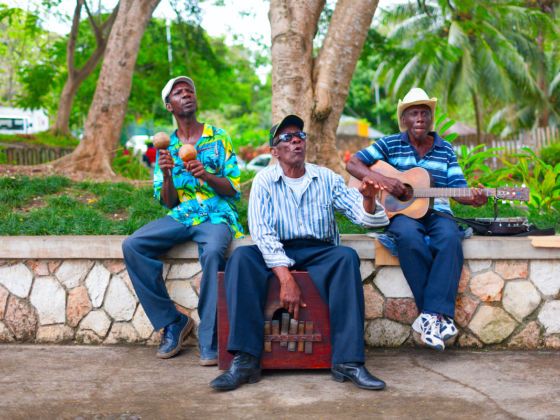1. Marijuana isn’t entirely legal.
The laws against marijuana usage are mostly toothless. An oft-repeated joke is that if the police catch you with it, they’re more likely to ask for some than arrest you. Officially, it’s been decriminalized, meaning if you’re in possession under two ounces, you can’t be arrested; only fined $500 Jamaican dollars. (Although that seems like a formidable sum, it is roughly $4 USD.)
Nonetheless, blatantly lighting up in front of a police officer is disrespectful and invites trouble, and by no means are you safe taking it through an airport or official building. You’ll often be approached by vendors in public areas to buy it, but if you’re looking, be careful who you ask. (And don’t expect the desk staff at major hotel chains to point you in the right direction.)
